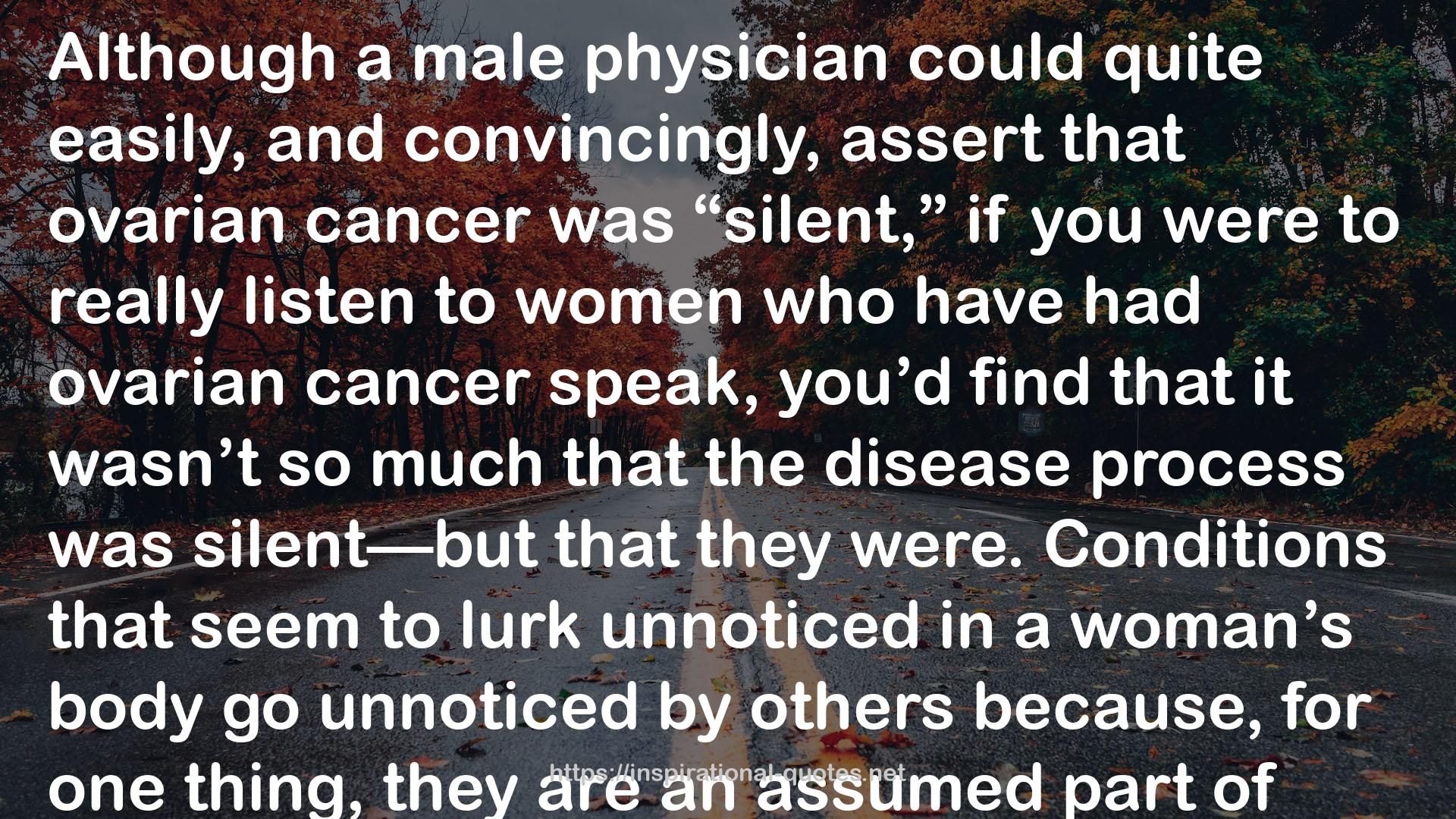" Although a male physician could quite easily, and convincingly, assert that ovarian cancer was “silent,” if you were to really listen to women who have had ovarian cancer speak, you’d find that it wasn’t so much that the disease process was silent—but that they were. Conditions that seem to lurk unnoticed in a woman’s body go unnoticed by others because, for one thing, they are an assumed part of womanhood, and, for another, women are taught to keep those pains private. I’ve often found it curious that when a woman is suffering, her competence is questioned, but when a man is suffering, he’s humanized. It’s a gender stereotype that hurts both men and women, though it lends itself to the question of why there is a proclivity in health care, and in society, to deny female pain. "
― , Ask Me About My Uterus: A Quest to Make Doctors Believe in Women's Pain
